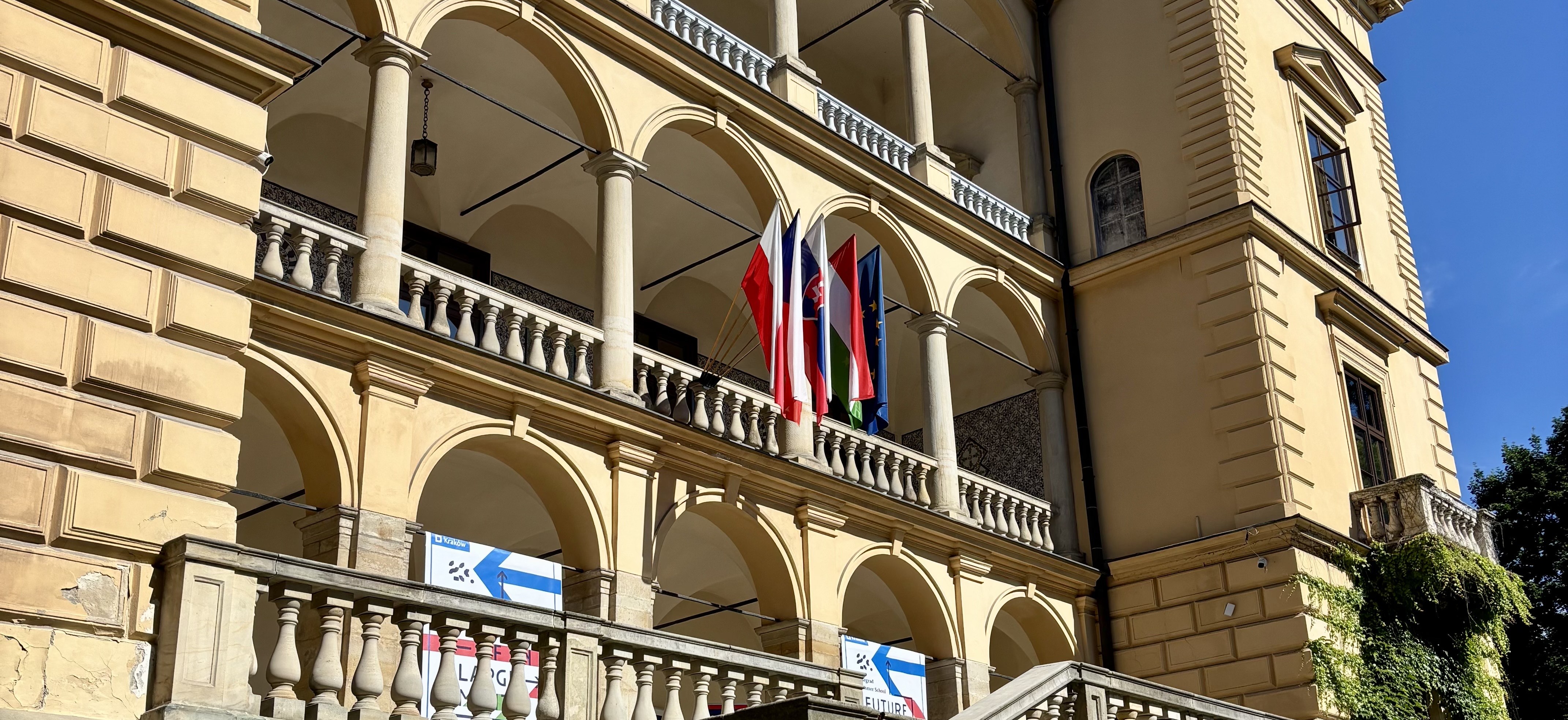
As we near the halfway point of the 23rd Visegrad Summer School, our participants continue to impress with their curiosity and critical engagement. On the third day of the program, two lectures tackled urgent political and economic themes shaping the region's future.
“What Went Wrong with the Political Establishment of Georgia?”
Delivered by Giorgi Meladze, a human rights lawyer, the session offered a raw and detailed account of Georgia’s post-Soviet transformation - or lack thereof. From constitutional milestones to the rise of oligarchic power, the lecture explored Georgia’s structural weaknesses, including its ongoing security crises, mass emigration, and democratic backsliding. Participants asked tough questions about upcoming elections, EU policy, and internal political divisions, many of which had no easy answers. “Georgia has discipline,” Meladze said. “But it needs a plan.”
“An Economic Understanding of Populism and Euroscepticism: A Key Factor in EU Enlargement”
Led by István Zsolt Benczes (Corvinus University of Budapest), this session unpacked the complex relationship between populist ideology, economic policy, and rising Euroscepticism. Professor Benczes navigated through different definitions and models of populism, drawing a line between left- and right-wing variants and examining how economic globalization, migration, and welfare systems play a role in shaping today’s populist political discourse in Europe.













